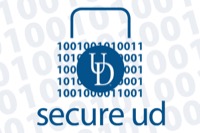Reports on safety, diversity
President, provost address Faculty Senate in final fall semester meeting
Editor's note: For more detailed information, including meeting minutes, visit the Faculty Senate website.
5:38 p.m., Dec. 10, 2015--The University of Delaware Faculty Senate heard presentations by UD Acting President Nancy Targett and Provost Domenico Grasso, as well as reports on campus safety and diversity, during its final meeting of the fall semester on Monday, Dec. 7, in Gore Hall.
Targett updated senators on the establishment of a committee to address concerns expressed by members of the University Board of Trustees about the definition of faculty and their responsibilities, as contained in the board's bylaws.
FYI Stories
June 6: UDid It! Picnic
2FA protects you
Targett noted that Article 3.2 of the bylaws defines faculty as including the University president, all vice presidents, associate vice presidents, the provost, vice provosts, associate provosts, deans, associate deans, directors, full time professors, associate professors, assistant professors and additional miscellaneous individuals.
“The Board of Trustees said they don’t think this particular group has ever met, and that they would like a better definition about what constitutes faculty in Article 3,” Targett said. “The board also said that it was being asked to review some things around the curriculum that are probably the purview of the faculty, and that trustees would really like to see us come forward with a recommendation of how to clear up these concerns.”
Targett added that the trustees would like a clearer definition that differentiates responsibilities between the faculty and the administration.
She said she plans to appoint an advisory committee on the matter and noted that to have a report ready for the Board of Trustees in time for its spring meeting would require that the report be submitted by April 2016.
“That’s pretty rapid, but we can try,” Targett said. “I’m going to try to get broad input on this, come back to the Faculty Senate for comments and then take it forward to the trustees.”
Provost’s report
Grasso noted many achievements since his arrival that reflect the spirit of shared governance, including the implementation of Delaware Will Shine, the University’s newly minted strategic initiative, as well as budget reform, promotion and tenure concerns, and diversity initiatives.
“We worked to get a strategic plan that was written by the faculty and owned by the faculty and staff and that involved students and stakeholders,” he said. “This is something of which we can all be proud.”
Grasso also noted that before he arrived on campus in August 2013, he asked University deans to write a white paper on the issues surrounding the budget.
“We worked together and now we have a budget model that is not perfect, but is closer to where we want to be,” Grasso said. “We are going to be working together on implementing that budget model and see if we can refine it even more before we adopt if officially in a couple of years.”
Commenting on discussions about continuing nontenure track and continuing track faculty members, Grasso said, “This is a topic where we came toward it from different perspectives. We stepped back, worked together, assembled a team and came up with a new way forward — a way that we can all agree on.”
Other achievements and ongoing initiatives include changing admissions criteria and moving forward with initiatives to make UD a more diverse and inclusive campus for students, faculty and staff members, Grasso said.
“We have been working hard during the last two and a half years, and even before that. We now have a diversity blueprint that was written in collaboration and consultation with the faculty and is now out there for comment,” he said. “It is a commitment to inclusive excellence, and I think these are all things that we can be very proud of.”
Grasso also recognized the efforts of Targett; Carol Henderson, vice provost for diversity; Emily Davis, chair of the Faculty Senate Committee on Diversity and Inclusion; and Kasandra Moye, director of the Center for Black Culture.
“They were very instrumental in helping us see where we needed to go and the steps that we have to take to get there,” Grasso said.
Campus safety
University Police Chief Patrick Ogden updated members of the senate regarding active shooter incidents and officer training to respond to such situations.
Ogden described active shooters as individuals trying to kill or injure people without any regard for themselves or whether they get killed in the process.
“The first major game changer in the way police respond to active shooter situations came after Columbine (April 20, 1999),” Odgen said. “At that time, police were trained to set up a perimeter in such situations and wait for the SWAT team to arrive. Now, the training is for police to bypass what is going on and take out the shooter.”
Another game changer, in terms of police response, was the tragedy at Virginia Tech on April 16, 2007, where 32 people were killed and 17 wounded in two separate attacks, Ogden said.
“We have the advantage of being an internationally accredited police department, which means we follow best practices in service training, and we work in cooperation with other agencies including the New Castle County, city of Newark and Delaware State police departments,” Ogden said. “All of these officers are trained in the same way. We also have video cameras, blue light phones and monitoring of social media.”
Ogden also mentioned that there is a video on the UD Police website, "When Lightning Strikes, Shots Fired on Campus," which provides information on specific actions to take if an active shooter event should occur.
Diversity at UD
Emily Davis, chair of the Faculty Senate Committee on Diversity and Inclusion and associate professor of English, reported on the primary goals and responsibilities of the committee.
“We have two roles,” Davis said. “One is to support faculty and, in particular, faculty whose identity or work makes them vulnerable in terms of issues relating to diversity.”
Issues include the support of faculty research and what happens when an issue comes up in a department and the faculty member cannot go to the chair, or when someone is turned down for a grant because their work is seen as too minor, Davis said.
“This is something we will be thinking of more and more as a committee,” Davis said. “We also want to weave diversity more meaningfully into our general education curriculum and to support our students by thinking about how our actions and speech, especially in the classroom, help others to feel or not feel at home.”
Senate actions
During the meeting, senators also approved a change to the name of the Faculty Senate Committee on Diversity and Affirmation to the Faculty Senate Committee on Diversity and Inclusion.
Senators turned down, by a 36-13 margin, a proposed resolution to limit administrators from sitting on departmental promotion and tenure committees.
Consent agenda
During the consent agenda portion of the meeting, senators approved requests to revise the required courses in the bachelor of science in computer science and to revise the chemistry and biochemistry course numbering scheme.
Senators also approved a request to add a graduate certificate in cybersecurity.
Faculty Senate President Robert Opila, professor of materials science, updated senators on recent senate and faculty achievements, including the adoption of the family friendly policy now in the Faculty Handbook.
“This is important because it lets you know what family friendly policies are available to you,” Opila said. “In the process of recruiting, we can present the kind of climate that we have here at UD.”
Opila also urged senators to support UDance to help raise money and awareness for childhood cancer.
“This is really important, especially if you have known anyone who has had this in their family,” Opila said. “Please take the opportunity to contribute to this.”
The next meeting of the Faculty Senate is scheduled at 4 p.m., Feb. 8, in 104 Gore Hall.
Article by Jerry Rhodes








